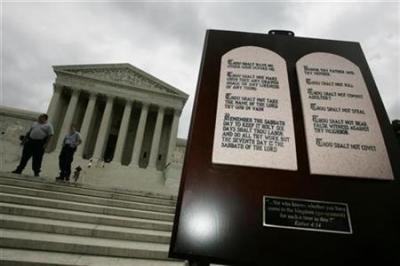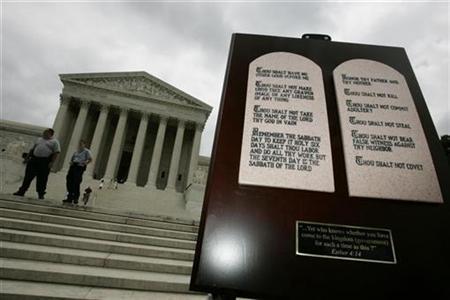
“Pastor … don’t get political!” “Politics have no place in the church.” “Jesus never talked politics.” “What about the separation of church and state?”
On the surface, church and politics don’t mix. But do they?
I understand the concerns about the Church aligning too closely with a political party. These worries are valid. Blind partisanship tempts our fragile egos, making us feel superior to those who think differently. Partisanship can often result in demonizing those we have been called to love. Moreover, blind partisanship can destroy a pastor’s love for the community he is called to serve. When we feel threatened by opposing views, we can quickly view our neighbors as enemies to conquer.
Blind partisanship can steal the pastor’s prophetic voice. How many have lost their credibility because they sought the approval of a party over their principles? Therefore, I believe the Church should reject obligatory allegiance to either party, both the left and the right.
Nevertheless, party and politics are not one and the same thing. Politics deals with human relationships. Politics concerns the ethics required to maintain a good and just society. The philosopher Aristotle rightly observed what the Hebrew scriptures had taught 1500 years prior — humans are made to live in relationships. Aristotle called humans “political animals” because he observed (although he did not know it) that creatures bearing the image of the trinitarian God can only flourish when they live within a community.
But a political party is different. A political party is concerned with implementing specific policies to solve social problems within a community. A political party seeks to unify people for the purpose of enacting community change toward its own particular vision of the good. Thus, it seems possible to talk about politics (the ethics of living in a community) without endorsing a particular party (the specific policies for solving relational issues). But it seems impossible to talk about a political party without acknowledging its underlying ethics.
Given the distinctions between politics and political parties, the Church has no choice but to discuss politics. The Church’s primary message is one of relationships. The Gospel is good news because it tells humanity how to be restored in relationship to God, which necessarily affects humanity’s relationship with one another. The call to love one’s neighbor as oneself is a political message. Thus, the Church talks about politics every time she declares, “Repent and believe.”
Moreover, if the Church does not cast a vision for goodness, truth, and beauty, then those inside and outside the Church will have their moral vision shaped by an incomplete understanding of what is truly good. For instance, a good society might envision a world without poverty at the expense of individual property. Or it may envision individual liberties without a concern for my neighbor’s wellbeing.
An honest respect for ethnic differences may collapse into worshiping one’s own race. If the French Revolution of the 19th century and the Russian Revolution of the 20th century teach us anything, an ideology is always ready to fill the void whenever the Church abdicates her role. Ideologies are dangerous because they pick up on a partial truth and then totalize it to the exclusion of the fullness of truth, goodness, and beauty. Consequently, if the Church does not embrace her role in shaping the community’s moral conscience, then something or someone else will.
To be clear, I am not arguing for mere moralism. Moralism provides ethical demands without a vision for why that standard is excellent and beautiful. Moralism promises that we will reach Heaven if we check all the right ethical boxes. Moralism is like the short-tempered parent who yells from the front seat, “Because I said so, that’s why!” But shaping the moral conscience is more like the composer who meticulously arranges every note until the song crescendos in a breathtaking moment. Shaping the moral conscience provides theological reasons for why a moral act is good or evil and creates an awe-inspiring aesthetic. Unfortunately, I fear that much of the Church’s political voice has sounded more like a summer road trip to the beach than Handel’s Messiah.
However, the Church has answers to today’s pressing social concerns. And beyond simply providing rational answers, the Church can cast a compelling vision for a good and flourishing society. The Gospel includes a vision for ecology, justice, dignity, evil, human exceptionalism, and love. The Church’s social vision holds up nicely when we contrast the Gospel’s vision against the banal and futile vision of today’s “live for now” ethic.
So, let’s not shy away from politics in the Church. Let’s not allow a false conception of what is “political” to keep us from addressing our culture’s needs. Let’s not avoid the ethical concerns that are destroying our communities. Considering our current social climate, it seems now is the right time for the Church to get more political.
Dan serves as a pastor at Restoration Church in Buffalo, NY. He holds a Ph.D. in Ethics with a special focus on matters of religious freedom. He writes for Ethics and Religiously Liberty Commission as a member of the ERLC Leadership Council. Additionally, he is the co-author of the book, He Said, She Said, God Said, Biblical Answers to Marriage Questions.
Free Religious Freedom Updates
Join thousands of others to get the FREEDOM POST newsletter for free, sent twice a week from The Christian Post.




























![[Video] More – Aghogho » GospelHotspot](https://gospelhotspot.net/wp-content/uploads/2024/04/More-Aghogho.jpeg)
















